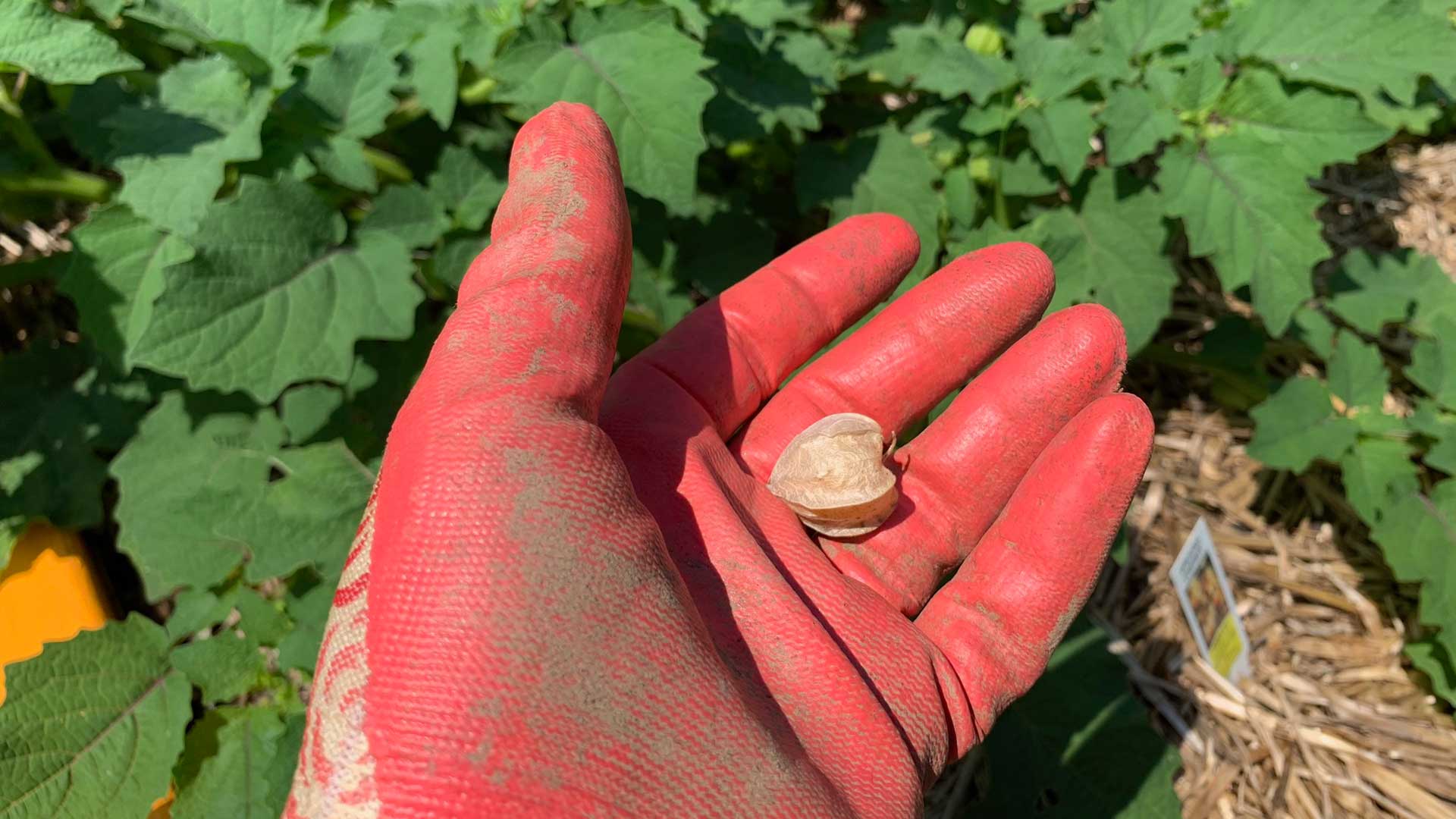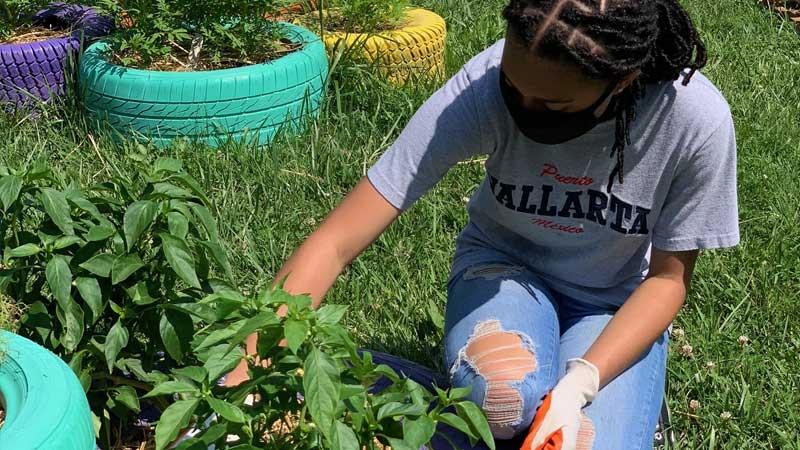Nutrition Matters: August Update from the Educational Garden

Summer is in full swing and so is the Maryland Food Bank’s Education Garden! Our focus this season is the Partner Garden, a special area created especially for any of MFB’s nearly 350 statewide partners to visit and learn about how gardening can help strengthen their communities when they pick up orders from our Baltimore warehouse.
I’ve heard from some of our partners that they would like to grow fresh, healthy produce for their clients but feel limited by a lack of funds, space, or soil. Luckily, these challenges can all be overcome by a visit to our garden!

Partners will discover that even if they are unable to find money in their budgets for planters or raised bed lumber, salvaged items such as pallets, tires, and 5-gallon buckets fill in very nicely, and keeps some of these items out of landfills. Even old shopping carts, shopping baskets, and milk crates can be used!
In addition to being inexpensive (or even free), these materials make it possible to grow fruits & vegetables aboveground. This is a great solution if an area has poor soil that can’t support plants, or even just concrete – don’t let the existing soil condition be a barrier to your success.

And for sites with very limited space, remember that if you can’t grow out you can still grow up! Growing plants vertically, such as training pole beans and cucumbers vines to climb up fences and placing strawberries in pallets that have been propped up, can produce an impressive amount of fresh produce.
All these techniques, and more are demonstrated in the Partner Garden, and we invite you to visit and get ideas for starting your own garden. Gardens a wonderful way to not only increase the nutrition of the food you distribute but also inspire your clients to start similar gardens at home. Growing one’s own food cuts down on food costs as well as increases the amount of fruits and vegetables consumed. A demonstration garden (a mini version of ours) would be just one more way to have a nourishing impact on Maryland communities.

About The Author
Kate Long
Kate Long is dedicated to promoting nutrition education and healthy food access for the food insecure in our communities. Her work with food bank nutrition programming began at Gleaners Community Food Bank in Detroit, where she taught cooking and nutrition classes to SNAP participants as well as managed the garden project’s production of fresh produce for soup kitchens and food pantries. Kate believes that making healthy food available to all clients, offering support in developing healthy eating habits, and connecting community members to how food grows are services that promote the overall wellness which all Marylanders deserve.
Get updates on our progress in the fight against hunger
Want to see how your involvement directly impacts the well-being of your neighbors in need? Get the latest news sent to your inbox.







